
Main Page
Alphabetical Menu
Chronological Menu
|
Skate Kitchen 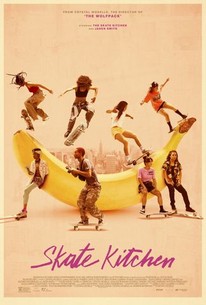 Camille (Rachelle Vinberg), an 18-year-old, lives with her mother (Elizabeth Rodriguez) and loves the skateboard. After suffering an injury from skateboarding, Camille's mother forbids her to continue skateboarding, but Camille ignores her and secretly joins a skateboarding group called Skate Kitchen. Her new skateboarding pals include Kurt (Nina Moran) and Janay (Dede Lovelace). While working at a grocery store, Camille befriends Devon (Jaden Smith) who just so happens to also be a skateboarder and to have been in a rocky relationship with Janay. Skate Kitchen is more of a coming-of-age drama than a sports drama. Writer/director Crystal Moselle and co-writers Aslihan Unaldi and Jennifer Silverman aim for a slice-of-life depiction of Camille's dysfunctional relationship with her mother and the dynamics between her new friends. Unfortunately, there's very little palpable dramatic tension to be found here, and the relationships fall flat and feel contrived. She gets kicked out of the house when her mother learns about her secret meetings with Skate Kitchen, and Janay wants Camille out of the group when she discovers that she's secretly spending time with Devon. None of those relationships are explored profoundly enough to feel genuinely moving, and too much of the film meanders.
Moreover, Camille and Devon have virtually no chemistry together. It's okay that Skate Kitchen has a wafer-thin plot, but it should at least compensate for that by developing its characters more or by having something interesting to say. In other words, it barely scratches the surface of its coming-of-age themes. A brief conversation with Camille and her friends about sex where you learn that Camille is a virgin is the most intimate and revealing scene of the film, but, unfortunately, it's ephemeral. At least the skateboarding scenes, especially during the last scene, are mildly exhilarating to watch, but that's not nearly enough to compensate for the rest of the film which is mostly dull. The performances are naturalistic, but nothing to write home about. The Kid with a Bike is a much more engrossing, powerful and unforgettable coming of age drama that also uses a sport as a metaphor (in that case, bike-riding). Skate Kitchen, on the other hand, is ultimately forgettable and underwhelming. 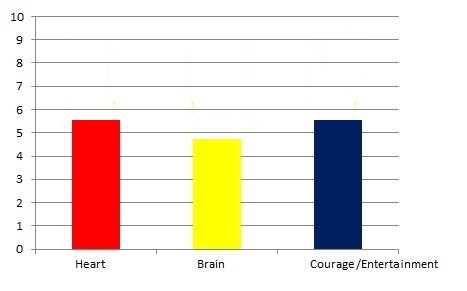 Slender Man 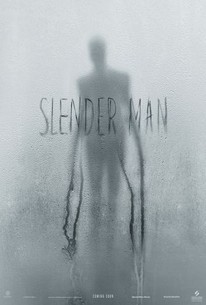 A group of high school friends, Wren (Joey King), Chloe (Jaz Sinclair), Hallie (Juila Goldani Telles) and Piper (Annalise Basso), are fascinated by the legend of a mysterious evil entity called Slender Man. They research him on the internet and watch videos of his many sightings. When Piper disappears, Wren, Chloe and Hallie desperately try to find her while Slender Man terrorizes them. Slender Man has a decent amount of scary and thrilling scenes, but it never quite reaches the emotional depths of The Babadook. The screenplay by David Birke does a good job of introducing each of the four friends and showing how they interact in their day-to-day lives before their Slender Man ordeal. Like the vast majority of modern teenagers, they communicate via text and rely very heavily---perhaps too much--on what they read and watch on the internet. Birke wisely keeps the film lean, incorporates exposition in a non-lazy or boring way, and doesn't rely on gore as a means of providing frights. There are indeed some jump scares to be found, but at least they're not excessive. Most of the real scares are psychological as your imagination begins to wonder where Slender Man might be lurking. Kudos to director Sylvain White for not using nauseating shaky cam to generate tension and for not making this a "found footage" film. The set designs, camerawork, musical score and lighting enhance the chilling, foreboding atmosphere. The editing, at times, feels a bit choppy, but that's a minor flaw that doesn't make the film any less entertaining. Slender Man has plenty of style and not much substance, but sometimes its style does becomes part of its substance. Moreover, Joey King, Jaz Sinclair, Juila Goldani Telles and Annalise Basso each give convincing performances, especially during the many intense scenes, so that somewhat compensates for the mostly shallow screenplay that doesn't really flesh out the characters enough. Roger Ebert once wisely observed that a horror film doesn't need a big star because the big star is the horror itself. Unfortunately, the character of Slender Man is the film's weakest element because he's not given a backstory. Perhaps that's a problem that originates with the source material, the creepypasta Internet meme, but giving him a backstory would've elevated Slender Man beyond mediocrity. A horror film, after all, is as good as it's villain. Slender Man looks scary and menacing, but there's nothing about him that stands out beyond that. Fortunately, Slender Man doesn't overstay its welcome and never becomes exhausting nor dull at a running time of just 93 minutes. 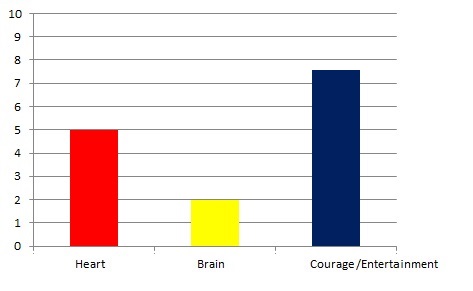 The Swan  The parents of Sól (Gríma Valsdóttir), a troubled 9-year-old girl, send her to the countryside for the summer to live with her aunt, Ólöf (Katla M. Þorgeirsdóttir) and uncle, Karl (Ingvar Eggert Sigurðsso) who teach her how to work on the farm. She shares a bedroom with Jón (Thor Kristjansson) and develops a crush on him. He has his eyes set on Ásta (Þurí Ður Blær Jóhannsdóttir), Sól's cousin who's pregnant and just broke up with her boyfriend. Over the course of one summer, Sól learns a lot about the harsh realities of life and growing up. Based on the novel Guðbergur Bergsson, The Swan is a gently moving, slow-burning and unflinching drama. The screenplay by writer/director Ása Helga Hjörleifsdótirr goes into surprisingly dark territory that makes it more than your average coming-of-age story. This isn't a family-friendly film; it's primarily for adults even though its protagonist is 9-years-old. What she witnesses and experiences emotionally is quite heavy stuff, although none of the story's twists will be revealed here. The more you learn about Jón and Ásta, the more flawed, complex and, therefore, human they seem. They each go through their own struggles throughout the film which makes them all the more interesting even if they're not very likable. There are no villains per se, but Jón's behavior toward Sól does border on creepy at times. One of The Swan's greatest strength is how it uses metaphors through nature. The film's landscape becomes a character in itself, and the meaning behind the titular swan, part of a mythological story told to Sól, is lyrical and thought-provoking. Hjörleifsdótirr should be commended for trusting the audience's patience and imagination; much of the dramatic tension comes not from the plot itself, but for the inner world of emotions inside Sól. Most importantly, though, newcomer Gríma Valsdóttir gives a terrific performance as Sól. She's the film's heart and soul and makes The Swan a captivating and very poignant experience to behold. 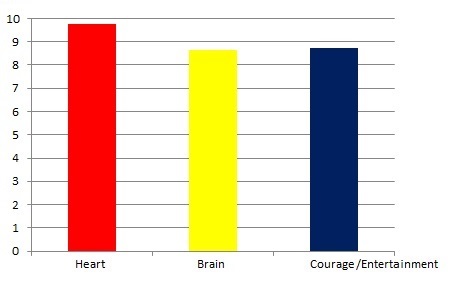 Main Page Alphabetical Menu Chronological Menu ______________________________________________________ |
The NYC Movie Guru
themovieguru101@yahoo.com
Privacy Policy